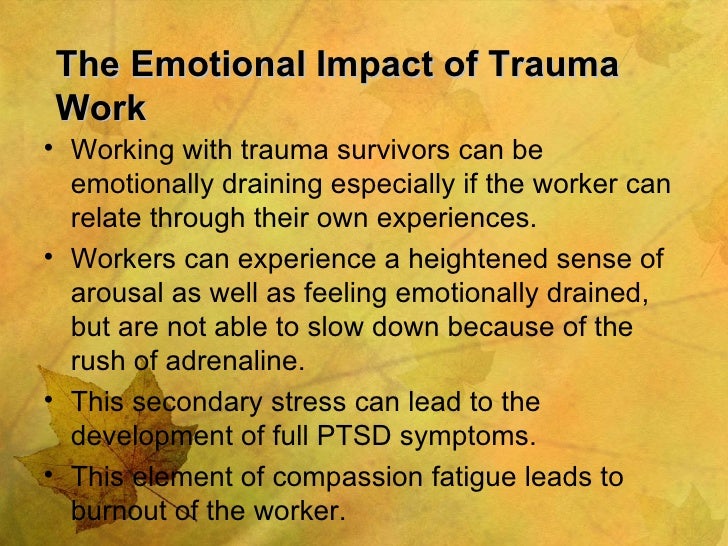
Compassion Fatigue: fatigue, emotional distress or apathy resulting from the constant demands of caring for others or from constant appeals from charities.
I found the following from an article on fatigue in the medical field: Most nurses enter the field of nursing with the intent to help others, and provide empathetic care for patients.... I think foster and adoptive parents begin taking in children with the same goal in mind, but like the nurses, if we aren't careful we too become victims of Compassion Fatigue.
Why? What are we doing wrong? Where does the break occur? What can be done to prevent this from happening? Social Services, adoption agencies and mental health groups are beginning to ask these questions, some more adamantly than others.
I am convinced better training would go a long way. Foster and adoptive parents need to understand connected parenting before bringing troubled children into their home. Even if the child is a newborn, parents need to understand attachment, how to build it and why it is so crucial, as well as what can happen if attachment does not occur. I know everyone wants to avoid labeling children who are in foster care as different but you must realize that these children have experienced trauma which is why they need to be parented differently. Parents need to understand that, sadly we didn't.
Don't take more than one child in to your home at a time for long term/adoptive placements. Siblings who have experienced trauma together can have what therapists call a Trauma Bond. The children bond through the pain they went through together. They keep recreating, triggering that pain in each other to keep that bond alive. Children who come into our homes through foster care can be exceptionally needy. For some children it is best to be an only child, when you get a sibling group, you have to spread yourself really thin and you may find it difficult to reach around.
To help a child work through their trauma, you must walk beside them mentally and emotionally as they process what has happened. When you have multiple children with PTSD and trauma, you will soon find yourself burning out. Put your child in respite, give yourself a break. Respite should be mandatory but take note that I am saying this in hindsight, I wouldn't have agreed with myself 5 years ago!
Social workers and caseworkers need to understand how mental health and trauma affect children and the families who are now parenting them. Parents need to be taken seriously when they have a need. I know the mental health system is clogged with traumatized and mentally ill children and it isn't always possible to find a bed for a child who needs help, but neither should foster/adoptive parents be left hanging in limbo with a child who is unstable.
Joining a support group for parents of children with similar needs is also beneficial. Just knowing you are not alone in the craziness can do a lot to eliminate caregiver fatigue. Emotional support is an absolute necessary.
Know your limits. When we went into foster care we saw hurting children and wanted to do everything we could to help them, never thinking of the toll it would take on our health. I know I say it time and again but, "Know your limit, you can do more harm than good by ignoring it."
*I am throwing out advice, but I must admit we didn't follow these guidelines. In hindsight, I know I wouldn't be so burned out if we would have done things differently but we didn't know better.
No comments:
Post a Comment
Thanks for commenting. I love hearing from my readers!